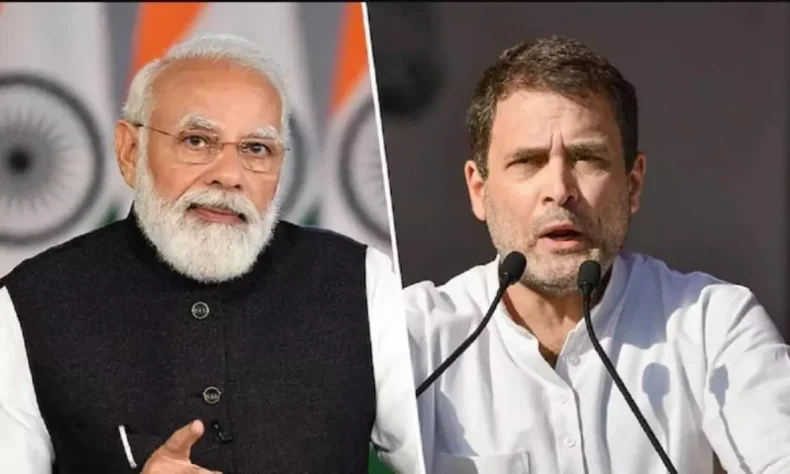In a recent turn of events, Indian National Congress leader Rahul Gandhi has been convicted in a defamation case filed against him by a member of the Bharatiya Janata Party (BJP) over remarks he made about the Modi surname. The case, which dates back to 2019, has seen a number of twists and turns over the past few years, and the recent verdict has once again brought it into the spotlight.
Gandhi, who has been a vocal critic of the Modi government, had made the controversial remarks during a rally in Maharashtra in April 2019. He had said that “how come all the thieves have Modi as a common surname?” while referring to the Prime Minister and his associates. The statement had caused an uproar among the BJP leaders, who accused Gandhi of defaming the Prime Minister and his community.
A defamation case was filed against Gandhi by a member of the BJP, and the case has been making its way through the courts for the past two years. Gandhi had initially refused to apologize for his remarks and had maintained that he was only speaking the truth. However, as the case progressed, he eventually apologized to the Supreme Court, which was hearing the case.
Despite his apology, the court found Gandhi guilty of defamation and ordered him to pay a fine of Rs 10,000. The verdict has been seen as a major blow to the Congress party, which has been struggling to maintain its relevance in Indian politics in recent years.
The case has also highlighted the increasing politicization of the Indian judiciary, with many experts questioning the impartiality of the courts in recent years. Some have accused the BJP of using the courts to settle political scores and to silence its opponents. After the conviction Gandhi tweeted,” I am fighting for the voice of India. I am ready to pay every price for it.”
The verdict has also sparked a debate about the freedom of speech in India, with many questioning whether politicians should be held accountable for their statements. While some argue that freedom of speech should not be absolute and that politicians should be held to a higher standard, others feel that the case sets a dangerous precedent and could be used to silence dissent.
In India, the right to freedom of speech and expression is enshrined in the Constitution under Article 19(1)(a). However, this right is subject to reasonable restrictions that can be imposed by the state in the interests of sovereignty and integrity of India, the security of the state, associations with foreign nations, public order, ethics, or concerning contempt of court, defamation, or provocation to an offense.
While the Constitution provides for the freedom of speech and expression, there have been cases where individuals have been penalized for making statements that are deemed offensive or defamatory. In recent years, there has been a growing trend of defamation cases being filed against politicians and journalists who have criticized the government or its policies.
This trend has raised concerns about the state of democracy in India, with many experts pointing out that the right to freedom of speech and expression is essential for a healthy democracy. Critics argue that the increasing use of defamation cases to silence dissenting voices is a worrying sign of the erosion of democratic values in the country.
Rahul Gandhi Highlights Concerns over credibility of Indian Media

The verdict in the defamation case against Rahul Gandhi has also raised questions about the credibility of the Indian media. Many have accused the media of being biased towards the ruling party and of playing a crucial role in shaping public opinion. Some have pointed out that the media has been complicit in the BJP’s efforts to silence its opponents.
The media plays a crucial role in informing citizens and shaping public opinion, and its independence is essential for a healthy democracy. However, in recent years, there have been concerns about the state of the media in India, with many accusing it of being influenced by political and corporate interests.
However, the case is a reminder of the challenges that the Congress faces as it tries to rebuild itself and regain its position as a major political force in India. The party will need to find new strategies and tactics to counter the BJP’s growing influence and to reconnect with the Indian electorate.
Despite the challenges it faces, the Congress remains a significant force in Indian politics, and Gandhi remains a popular leader among many Indians. His conviction in the defamation case is unlikely to have a significant impact on his political career, and he is expected to continue to play a prominent role in the Congress party.
The verdict in the defamation case against Rahul Gandhi is a reminder of the challenges that India faces as it tries to navigate a rapidly changing political landscape. With the BJP and the Congress engaged in a bitter battle for power, and with the media and the judiciary increasingly politicized, the future of Indian democracy hangs in the balance. It remains to be seen whether the country can overcome these challenges and emerge stronger, or whether it will succumb to the forces of polarization and division that threaten to tear it apart.












